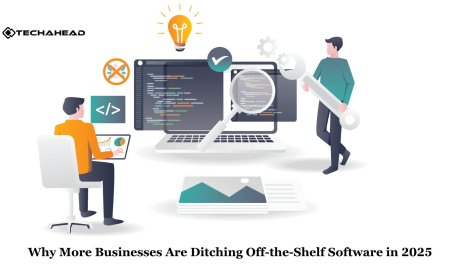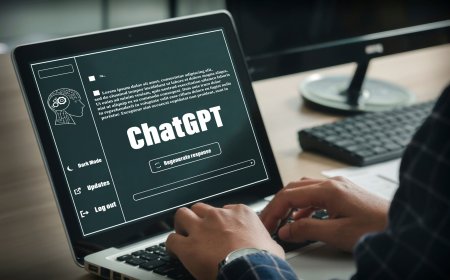How Do Smart Contract Security Audit Services Protect Your Blockchain Project?

Smart contracts are self-executing pieces of code that operate on blockchain networks, automating agreements and financial transactions without intermediaries. While their transparency and efficiency are transformative, they are not immune to bugs, vulnerabilities, or malicious attacks. The immutable nature of blockchain makes any error in a deployed smart contract potentially catastrophicresulting in financial losses, compromised data, or even complete system failure.
This is where smart contract security audit services come into play. These services are designed to rigorously test, evaluate, and analyze the code of your smart contracts to detect vulnerabilities before they can be exploited. Whether you're building a DeFi platform, NFT marketplace, DAO, or any blockchain-based application, a thorough audit serves as a crucial safeguard against costly mishaps.
What Happens During a Smart Contract Security Audit?
A smart contract audit involves a comprehensive review of the contracts codebase by a team of blockchain security experts. These professionals use both manual and automated methods to analyze the logic, functions, and interactions embedded in the code. They simulate various attack vectors, examine the contracts behavior under different conditions, and evaluate its integration with other contracts or external services like oracles.
The process typically begins with an initial consultation to understand the scope and architecture of the smart contract. This is followed by a line-by-line code analysis that scrutinizes how tokens are transferred, how ownership is managed, and how permissions are granted. Any deviation from best practices or vulnerabilities such as reentrancy attacks, overflow/underflow bugs, or front-running opportunities are highlighted.
After the analysis, auditors prepare a detailed report that outlines all discovered issues, categorized by severity. Recommendations for mitigation are also included, allowing developers to patch the issues before deployment. A re-audit is often conducted after the fixes are applied to ensure the contract is secure.
Common Threats That Audits Help Eliminate
Blockchain applications face a wide variety of security risks, many of which are unique to decentralized environments. Reentrancy attacks, for instance, occur when a contract makes an external call to another untrusted contract before resolving its current state, allowing malicious actors to repeatedly drain funds. Smart contract security audit services can identify such patterns and propose changes to the code to prevent reentrancy.
Another common vulnerability is improper access control, where unauthorized users can perform privileged actions due to missing or flawed permission logic. Auditors also look for integer overflows and underflows, which can distort financial calculations and be exploited for token minting or balance manipulation. Logic bugs, denial-of-service vectors, and gas inefficiencies are also frequently caught in audits.
By identifying these threats early, smart contract audits act as a preventive measure, reducing the attack surface and strengthening the projects resilience against both internal and external risks.
Enhancing Investor and User Trust
In the decentralized space, trust is everything. Users are often required to deposit funds, interact with automated logic, and rely on immutable code to function as intended. A single hack can wipe out millions in value and irreparably damage a projects reputation.
Publishing a smart contract security audit report demonstrates that the project has undergone professional scrutiny. This transparency builds confidence among users, investors, and potential partners. It signals that the team takes security seriously and is committed to safeguarding user assets.
In many cases, investors and venture capitalists require a completed audit as a prerequisite for funding. Exchanges and launchpads also demand security assurances before listing new tokens. Therefore, an audit isnt just about safetyits a foundational element in building credibility and unlocking growth opportunities.
Compliance With Industry Standards
The blockchain ecosystem is gradually becoming more regulated as governments and institutions take a closer look at digital assets. While smart contract audits are not legally mandated in most jurisdictions, they are increasingly seen as an industry best practice.
Following recognized standards such as those from the Ethereum Foundation, OpenZeppelin, or the ConsenSys Diligence checklist helps projects align with community expectations and regulatory guidelines. Many auditors benchmark their evaluations against these standards, ensuring that your code meets the latest security and functional criteria.
As legal frameworks evolve, having an audit history may also serve as proof of due diligence and risk management. This can be particularly valuable for institutional adoption, enterprise collaborations, or public blockchain integrations where compliance is a factor.
Supporting Scalable and Future-Proof Code
Security is not the only focus of smart contract audits. Auditors often highlight areas where the code can be made more efficient, modular, or scalable. Optimization recommendations might involve gas usage reductions, simplifying complex functions, or restructuring storage logic for faster execution.
This proactive feedback helps developers refine their architecture, making it easier to upgrade or expand the project in the future. Contracts that are clean, well-documented, and optimized not only perform better but are also easier to maintain and secure over time.
In multi-contract systems or composable applications, a solid audit ensures seamless integration between modules and external platforms. This level of foresight is essential for projects aiming to become foundational pieces of a larger blockchain ecosystem.
Minimizing Legal and Financial Liabilities
When a smart contract failure leads to financial loss, users, investors, and regulators may look for someone to hold accountable. In the absence of an audit, project teams may face lawsuits, fines, or even criminal liability if negligence can be proven.
Smart contract security audit services act as a formal layer of defense in this regard. They document that the team took reasonable steps to prevent risks and that expert evaluations were conducted before launch. In some cases, this can mitigate legal exposure or provide a basis for insurance claims related to cybersecurity breaches.
By reducing the likelihood of bugs or exploits, audits also prevent the enormous financial impact of a successful attacksomething that could easily exceed the cost of auditing by several orders of magnitude.
Continuous Protection Through Ongoing Audits
Blockchain is a fast-moving space, and smart contract vulnerabilities can emerge long after a project is deployed. A one-time audit is no longer enough. Most audit providers now offer ongoing services such as real-time monitoring, periodic re-audits after upgrades, and alerts for newly discovered exploits affecting existing protocols.
As your project evolveswhether through feature updates, DAO governance changes, or ecosystem integrationscontinuous auditing ensures that new risks are identified and mitigated. This agile security posture enables your team to stay ahead of emerging threats without interrupting operations or eroding user trust.
Many auditing firms also offer support during incident response scenarios, helping teams diagnose attacks, patch vulnerabilities, and communicate effectively with stakeholders in the aftermath of an event.
Choosing the Right Audit Service Provider
The effectiveness of a smart contract audit largely depends on the expertise and methodology of the service provider. Not all audit firms are created equal. Top-tier providers have a proven track record of securing high-value projects and are often recognized by exchanges and institutional investors.
Look for firms with experience in your specific blockchain network (e.g., Ethereum, Solana, BNB Chain), a transparent audit process, and publicly verifiable reports. The best audit services not only identify issues but also help your team understand and fix them with clarity and context.
Its also important to consider turnaround time, pricing, re-audit policies, and post-audit support when selecting an audit partner. The goal should be to establish a long-term relationship that evolves as your project grows.
Conclusion: A Strategic Imperative, Not Just a Security Step
Smart contract security audit services are not just technical evaluationstheyre a critical layer of protection for your blockchain projects longevity, integrity, and success. In a world where digital assets are valuable and code is law, the smallest vulnerability can have the biggest impact.
By investing in a comprehensive audit, youre not only safeguarding your smart contracts from known and unknown risks, but also reinforcing user trust, meeting industry standards, and preparing your project for sustainable growth. Whether you're preparing for launch or scaling to millions of users, smart contract audits should be viewed as an essential, ongoing component of your blockchain development strategy.








































